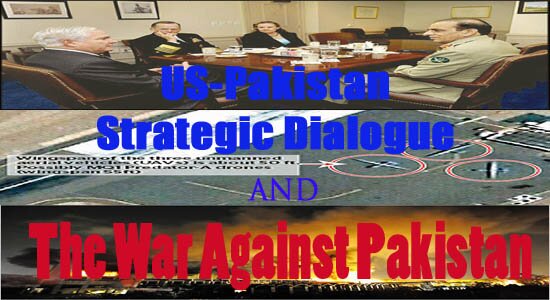
 Print This Post
Print This Post  Email This Post
Email This Post
Pakistani Giants Act As Pygmies: Premature ‘Retractions’ On WikiLeaks Story
Several Pakistani newspapers presented a funny scene next morning: falling over each other to apologize and explain. Pakistani giants were ruffled by a British newspaper that offered its own interpretation. None of the Pakistani giants had it in them to assess and reach their own conclusions.
SPECIAL REPORT | Monday | 13 December 2010
WWW.PAKNATIONALISTS.COM
ISLAMABAD, Pakistan—On 8 December, The Daily Mail of Pakistan, which publishes print and online versions from Islamabad, came out with a front page lead story detailing juicy information from secret cables from the US embassy in New Delhi.
By afternoon, a small and independent wire service, Online News Agency, picked up the story and released it to its subscribers in the Pakistani media.
But Online made one mistake: It forgot to mention the source of the story.
Next morning, 9 Dec., several Pakistani newspapers used Online’s version as front-page lead. The story quoted leaked US diplomatic cables to cover a range of issues, from the performance of the Indian military to the rise of Hindu extremist groups, to India’s meddling in western Pakistan through Afghanistan. Most of the claims were credible and WikiLeak’s initial release of cables from the New Delhi embassy supports large parts of the report. Other parts of the Daily Mail report might have been an exaggeration. This is no different from what the Guardian has been doing: using various WikiLeaks cables to write alarmist stories about Pakistan’s nuclear weapons and criticize the country’s legitimate regional policies.
The Guardian newspaper is one of three news organizations chosen by WikiLeaks to release the cables. By the evening of 9 Dec., the paper published a story online claiming it combed through its entire cable archives and could not find anything that supported the claims made in the Daily Mail’s report. Guardian concluded the report was completely ‘fake’.
‘Pygmies’
The following morning, 10 Dec., several Pakistani newspapers offered a hilarious spectacle: falling over one another in panic, offering apologies and explanations. None of them chose to launch their own assessments and reach their own conclusions. They simply took Guardian newspaper’s version for granted, word for word. Guardian said the Pakistani report is ‘fake’, and these giant Pakistani publications concurred. No questions asked.
This unanimity in inferiority complex is amazing. It is similar to the deference that Pakistan’s political and military establishments have been showing intrusive US ambassadors recently.
Guardian’s reporter in Islamabad, Declan Walsh, did not know or did not try to find out that the story was a front-page bylined lead of a small broadsheet that operates from a sprawling office in one of the most prestigious sectors of the Pakistani capital, staffed by some of the brightest journalists who have worked in the mainstream media. His oversight was bought by several Pakistani newspapers and they all agreed the story was written by a ‘ghost’ and possibly planted by intelligence agencies.
All of them peddled conspiracy theories about how this story might be the work of spooks. And they maligned Online News Agency for promoting planted material.
The most curious reaction came from the Online News Agency itself which accepted guilt for something it never did and then sacked an editor as an expression of devotion and submission to the Guardian newspaper’s finding.
The wire service is subscribed to The Daily Mail, which means a copy of the paper reaches the agency office every morning. And yet the editor of the agency, Mr. Mohsin Baig, released a statement on 11 Dec. accusing his own editor of “fabricating a false story on a highly sensitive subject.”
Question is: How did the Online editor fabricate a story published a day earlier by a newspaper on its front page and properly bylined?
How did Online’s sacked editor ‘fabricate’ a story already owned by a printed newspaper and posted on its Internet version?
‘WikiLeaks And Indian Media Confirm the “retracted” story’
What the retracting Pakistani newspapers did not know is that the debate started by the Daily Mail report on how three western newspapers were selectively releasing WikiLeaks documents and using them to target countries at odds with US foreign policy led WikiLeaks to expedite the release of 1,300 cables from the US embassy in New Delhi. The first few cables posted by WikiLeaks on its own mirror website over the weekend confirmed some of the findings of the Pakistani report.
The details of how the Indian media, on 11 Dec., confirmed what the Pakistani media ‘retracted’ only a day earlier can be seen here, including details from US embassy cables and from other sources
“Low Self-Esteem And Conspiracy Theories’
Guardian newspaper made two errors. It completely dismissed Daily Mail’s story on Indian involvement in terrorism against Pakistan using Afghan soil as incorrect. The second error was sourcing the story to Pakistani intelligence agencies and claiming it was not bylined. Both claims are easily contradicted.
Pakistani newspapers that ‘retracted’ and endorsed Guardian’s version of what is accurate failed to ascertain the truth by themselves. Had they done so, they would have discovered that, barring a few exaggerations, a large part of the Daily Mail report is genuine and is the cause of much discussion and sometimes tensions between the United States and Pakistan.
Instead the Pakistani newspapers fell for the Guardian’s editorial line and created an air of mystery around the story to justify blaming Pakistan’s intelligence agencies. Which is ridiculous, considering that anyone speaking for Pakistani interests or demonstrating Pakistani nationalism is conveniently linked to the intelligence community. This is a lousy conspiracy theory.
The icing on the cake was Online wire service’s editor who, instead of defending and proving his organization’s long track record of independent journalism, decided to accept ‘guilt’ for ‘fabricating’ someone else’s story.
‘How Pakistanis See Media’s Low Self-Esteem’
Mr. Mushtaq Sethi, editor of the on Facebook:
“Briefly the aforesaid western media organs [NYT, Guardian, Der Spiegel] had lost moral ground for insinuating or accusing the Pakistani press for propagandising the Wikileaks, for in reality their own publications of the same had been cherry picked, altered and fabricated to suit their patrons. Thus in reality anyone paying them back in the same coin or giving them a taste of their own medicine, could not be termed as unjustified.”
Mr. Zia Khan, comment posted here:
“Much more worrying than the alleged controls over the Indian media is what transpires in the media in Pakistan. The latter blows out of all proportion everything that is negative and disparaging about the country while downplaying the positive aspects. There is nothing wrong with criticism provided it is constructive and relevant. Criticism for the sake of criticism, blowing out of proportion and sensationalising negative stories for weeks on end is a different issue altogether and raises a whole host of other questions. Evidently the India media know the detrimental effect it has on the morale in the country and steer clear of the game. They are doing a good service to the country in guarding her image in the eyes of people at home and abroad. One can only wish that the same could be said of the media in Pakistan. According to an industry insider, out of some 6o or so TV channels in Pakistan only five or six are making money. The rest are all losing concerns. One of these has been allegedly losing more than thirty million rupees a month for years. What and who makes it possible to sustain this magnitude of loss? The answer to this question should be quite revealing.”
Mr. Mohammad Mansoor Ali Ansari, editor, forum on Facebook:
“The only difference here is that our media gives them more chance to insult us by bowing their heads and surrendering instantly without understanding about the repercussions. It would be hard to trust any news from Pakistani media if our media giants would act as Pigmies.”
© 2007-2010. All rights reserved. PakNationalists.com
Verbatim copying and distribution of this entire article is permitted in any medium
without royalty provided this notice is preserved.







This false belief in the systems and structures of kuffar states, even when and despite their own public not believing in them , demonstrates the defeated inferior mindset most of our influentials hold. It is no accident, this misplaced trust is the result of decades of careful culturing and controlled information release. The wikileaks have exposed this mismatch between the public face, and the real face of western capitalist democracy.
Many of us living in the west, see this glaring contradiction, but unfortunately many “foreigners” dont. Learning the hard way will not do, the new information age is helping to dismantle the illusion…shows over.
There is no excuse, as these are also ex-colonial states.
inferior submissive mindset our influentials hold.